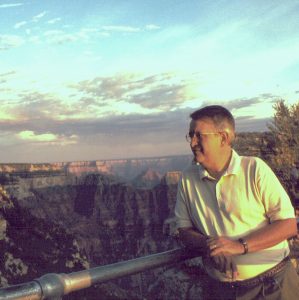“I am only one, but I am one. I cannot do everything, but I can do something. I will not let what I cannot do interfere with what I can.” This quote was what drew me to my study of Hale. For me, it resonated with the thoughts of Eleanor Roosevelt* “Better to light one candle.…”. Who was this guy? What else did he do?
Edward Everett Hale (1822-1909) was an author and clergy. Educated at Harvard, he brought a new (progressive) way of thinking about Christianity to the Americas and a stark contrast to Calvinists’ views of the depravity of humankind, and the doctrine of predestination. His focus on Christ’s command to love your neighbor” resulted in the formation of the Lending a Hand Society. When I read his statement, “The church must go outside its own borders and carry the Gospel to every creature or it is no church of Christ”, I began to understand who he was.
Hale’s teachings seemed to center on guiding the individual. “Never bear more than one trouble at a time. Some people bear three kinds: all they have, all they have had, and all they expect to have.” Combine the penchant for compassionate Christianity, practical wisdom with a sense of humor ( when asked if he would pray for the Congress, he replied, “No, but when I consider the Congress, I pray for the country.”), and Hale seems like a guy with whom I might like to have a beer.
Digging a little deeper into Hale’s life, I found that he had authored, “A Man Without A Country” . This is a story that we head in high school and had been relayed to us as fact; strange to learn now that it is a fictional account written to raise support for the Union in the Civil War. The story tells of the trial and punishment of Philip Nolan who was found guilty of treason. Nolan is sentenced to never hearing anything of the United States again, serving the life sentence as a prisoner on a series of US warships. Nolan leaves this epitaph for his stone, “He loved his country as no other man has loved her; but no man deserved less at her hands.” The telling of this story was the background to our memorizing this poem by Sir Walter Scott (although they are connected by theme only):
Breathes there the man, with soul so dead,
Who never to himself hath said,
This is my own, my native land!
Whose heart hath ne’er within him burned,
As home his footsteps he hath turned,
From wandering on a foreign strand!
If such there breathe, go, mark him well;
For him no Minstrel raptures swell;
High though his titles, proud his name,
Boundless his wealth as wish can claim;
Living, shall forfeit fair renown,
And, doubly dying, shall go down
To the vile dust, from whence he sprung,
Unwept, unhonored, and unsung.”
So there you have it, A short study conducted on a rainy afternoon.
__________________________
*Actually, the quote is from a sermon by William L. Watkinson but “everyone knows” that E. Roosevelt said it so why let popular wisdom conflict with fact?
